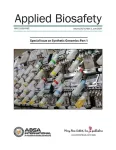(Press-News.org) Dementia risk factors associated with cardiovascular health may have increased over time compared to factors such as smoking and having less education, finds a new study led by UCL researchers.
The study, published in The Lancet Public Health, explored how the prevalence of dementia risk factors had changed over time and how this could impact rates of dementia in the future.
It is estimated that there are currently 944,000 people living with dementia in the UK and 52% of the UK public – 34.5 million – know someone who has been diagnosed with a form of the disease. It is one of the nation’s biggest killers and has been the leading cause of death in women in the UK since 2011.
There has been increasing interest in potentially modifiable risk factors, as eliminating these could theoretically prevent around 40% of dementia cases, according to research led by UCL academics.*
For the new study, the researchers analysed 27 papers, involving people with dementia across the globe with data collected between 1947 and 2015, and the latest paper published in 2020. They extracted data from each paper about dementia risk factors and calculated what proportion of dementia cases were attributable to each one, over time.
Dementia usually develops because of a combination of genetic and environmental factors, including hypertension, obesity, diabetes, education and smoking.
The team found that having less education and smoking had become less common over time and was associated with a decline in rates of dementia. Rates of obesity and diabetes have increased over time, as has their contribution to dementia risk.
The greatest dementia risk factor remained as hypertension in most of the studies that were reviewed although it is worth noting proactive management of hypertension has also increased over time.
Lead author, Dr Naaheed Mukadam (UCL Psychiatry), said: “Cardiovascular risk factors may have contributed more to dementia risk over time, so these deserve more targeted action for future dementia prevention efforts.
“Our results show that levels of education have increased over time in many higher income countries, meaning that this has become a less important dementia risk factor. Meanwhile, smoking levels have also declined in Europe and the USA as it has become less socially acceptable and more expensive.
“These patterns suggest that population-level interventions could significantly impact the occurrence of dementia risk factors, and governments should consider implementing schemes such as worldwide policies of education, and restrictions on smoking.”
This study was funded by the National Institute for Health and Care Research (NIHR) Three Schools’ Dementia Research Programme.
Study limitations
While reported levels of cardiovascular risk factors, in particular, may have increased over time, the proactive management of these conditions has also increased over time in many countries so the effect on dementia may be neutral or may contribute less risk to dementia over time.
Additionally, all studies analysed in the new research were from 2015 and earlier so may not reflect how trends may have changed since that time.
* https://www.ucl.ac.uk/news/2020/jul/four-10-dementia-cases-could-be-prevented-or-delayed
END
Cardiovascular health could be biggest risk factor for future dementia rates
Peer reviewed | Observational study | People
2024-06-27
ELSE PRESS RELEASES FROM THIS DATE:
New study shows alcohol rehabilitation and abstinence reduce the risk of alcohol-associated cancers
2024-06-27
June 26, 2024 (Toronto, Canada) – A new study conducted by the Centre for Addiction and Mental Health (CAMH), Bordeaux University Hospital, France, and the World Health Organization (WHO) has found that individuals with alcohol dependence who undergo rehabilitation or maintain abstinence experience significantly lower risks of developing alcohol-associated cancers. The article, entitled Alcohol rehabilitation and cancer risk: a nationwide hospital cohort study in France was published today in Lancet Public Health. It is the largest of its kind to provide evidence linking reduced ...
Early childhood problems linked to persistent school absenteeism
2024-06-27
University of Leeds news
Children who are not considered “school ready” by their teachers are more than twice as likely to become persistently absent at some point in their education, according to a new study led by the University of Leeds.
Researchers analysed data for 62,598 children aged 5-13 from across the Bradford district and compared it with school absence records between the academic years 2012/2013 and 2019/2020 to identify associations between early childhood problems and absenteeism.
The team from the School of Psychology and the Born in Bradford Centre for Applied Education Research found ...
Use of glucose monitors by people not living with diabetes needs more regulation
2024-06-27
A new narrative review1 led by researchers at UCL and Birmingham Children’s Hospital has found there is a lack of evidence to demonstrate the effective use of continuous glucose monitors (CGMs) in people not living with diabetes (PNLD).
In the study, published in Diabetic Medicine, researchers conclude there is currently little published evidence on how accurate CGMs are in measuring blood glucose levels in PNLD, nor sufficient evidence of what the health benefits or utility ...
Two studies shows mixed progress against EoE
2024-06-27
Despite high hopes, a drug that wipes out the namesake cell type associated with the disease eosinophilic esophagitis (EoE) doesn’t make patients feel better and doesn’t reverse tissue damage in their throats.
Meanwhile, data show that a different drug that had previously been approved for use in adults and teens with EoE is also safe and effective for children under 12 who weigh at least 15 kg (about 33 pounds).
The results of these clinical trials—plus an accompanying editorial—appear in the June 17, 2024, edition of The New England Journal of Medicine.
“Together, these trials provide exciting advances in our understanding of, and treatment options for, ...
Specific bacteria in your gut are involved in compulsive eating and obesity
2024-06-27
Vienna, Austria: An international team of researchers has identified specific bacteria in the gut that are associated with both mice and humans developing an addiction to food that can lead to obesity. They have also identified bacteria that play a beneficial role in preventing food addiction.
The research is presented today (Thursday) at the Federation of European Neuroscience Societies (FENS) Forum 2024 and is published simultaneously in the journal Gut [1,2].
Professor Elena Martín-García, from the Laboratory of Neuropharmacology-NeuroPhar in the Department of Medicine and Life Sciences at the Universitat ...
More than a quarter of ‘healthy’ over-60s have heart valve disease, according to new research
2024-06-27
Almost 4,500 healthy and symptom-free over-60s were examined, with 28pc found to have heart valve disease
Age was found to be strongly associated with an increased incidence of significant heart valve disease
Study lays the foundation for more research into the potential role of screening in the elderly population
Peer-reviewed – Prospective Cohort Study - People
The sheer scale of undiagnosed heart valve disease in our ageing population has been revealed for the first ...
Sylvester Cancer Tip Sheet - June 2024
2024-06-26
BLOOD CANCER
Sylvester Expert Endorses FDA’s Recent Cancer Drug Approval
Mikkael Sekeres, M.D., chief of the Division of Hematology at Sylvester, who specializes in treating leukemia and myelodysplastic syndromes (MDS), expressed his support for the Food and Drug Administration’s recent approval of the drug imetelstat. The drug, a telomerase inhibitor, treats cancer-related anemia in patients with lower-risk MDS. “With approval of imetelstat to treat myelodysplastic syndromes, we finally have another approach ...
Playing youth sports linked to better mental health in adults
2024-06-26
COLUMBUS, Ohio – Adults who continuously played organized sports through their youth have fewer symptoms of anxiety and depression than those who never played or those who dropped out, a new study finds.
And those who dropped out of sports had poorer mental health than those who never played at all.
But many more people drop out of youth sports than play continuously until they are 18, said Chris Knoester, senior author of the study and professor of sociology at The Ohio State University.
“If you play and stick with sports, it’s ...
Researchers find genetic stability in a long-term Panamanian hybrid zone of manakins
2024-06-26
We often think of species as separate and distinct, but sometimes they can interbreed and create hybrids. When this happens consistently in a specific area, it forms what’s known as a hybrid zone. These zones can be highly dynamic or remarkably stable, and studying them can reveal key insights into how species boundaries evolve—or sometimes blur. In a new study published in Evolution, researchers at the University of Illinois Urbana-Champaign describe a hybrid zone between two manakin species in Panama that ...
Special Issue of Applied Biosafety focuses on synthetic genomics
2024-06-26
In its first special issue on Biosafety and Biosecurity Considerations of Synthetic Genomics, the first part of a two-part special issue of the peer-reviewed journal Applied Biosafety focuses on the growing availability of customizable nucleic acid sequences and genomes from commercial sources. The issue also describes the advancements in desktop synthesis devices that enable the creation of on-demand nucleic acids. Click here to read the special issue now.
The rapid technological advancements described in part one of this two-part special issue are raising concerns among biosecurity experts and policymakers. The manuscripts in this issue explore the challenges, opportunities, and ...
LAST 30 PRESS RELEASES:
GLP-1 drugs associated with reduced need for emergency care for migraine
New knowledge on heritability paves the way for better treatment of people with chronic inflammatory bowel disease
Under the Lens: Microbiologists Nicola Holden and Gil Domingue weigh in on the raw milk debate
Science reveals why you can’t resist a snack – even when you’re full
Kidney cancer study finds belzutifan plus pembrolizumab post-surgery helps patients at high risk for relapse stay cancer-free longer
Alkali cation effects in electrochemical carbon dioxide reduction
Test platforms for charging wireless cars now fit on a bench
$3 million NIH grant funds national study of Medicare Advantage’s benefit expansion into social supports
Amplified Sciences achieves CAP accreditation for cutting-edge diagnostic lab
Fred Hutch announces 12 recipients of the annual Harold M. Weintraub Graduate Student Award
Native forest litter helps rebuild soil life in post-mining landscapes
Mountain soils in arid regions may emit more greenhouse gas as climate shifts, new study finds
Pairing biochar with other soil amendments could unlock stronger gains in soil health
Why do we get a skip in our step when we’re happy? Thank dopamine
UC Irvine scientists uncover cellular mechanism behind muscle repair
Platform to map living brain noninvasively takes next big step
Stress-testing the Cascadia Subduction Zone reveals variability that could impact how earthquakes spread
We may be underestimating the true carbon cost of northern wildfires
Blood test predicts which bladder cancer patients may safely skip surgery
Kennesaw State's Vijay Anand honored as National Academy of Inventors Senior Member
Recovery from whaling reveals the role of age in Humpback reproduction
Can the canny tick help prevent disease like MS and cancer?
Newcomer children show lower rates of emergency department use for non‑urgent conditions, study finds
Cognitive and neuropsychiatric function in former American football players
From trash to climate tech: rubber gloves find new life as carbon capturers materials
A step towards needed treatments for hantaviruses in new molecular map
Boys are more motivated, while girls are more compassionate?
Study identifies opposing roles for IL6 and IL6R in long-term mortality
AI accurately spots medical disorder from privacy-conscious hand images
Transient Pauli blocking for broadband ultrafast optical switching
[Press-News.org] Cardiovascular health could be biggest risk factor for future dementia ratesPeer reviewed | Observational study | People



